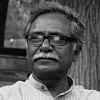
Anu Muhammad
The writer is member secretary of the National Committee to Protect Oil, Gas, Mineral Resources, Power and Ports.
The writer is member secretary of the National Committee to Protect Oil, Gas, Mineral Resources, Power and Ports.
Palestine is being reduced to a business opportunity under the Trump administration. Gaza is seen as prime real estate.
The 1971 Liberation War was the culmination of a long struggle for a democratic, secular, and egalitarian society.
Just because the Indian people supported Bangladesh in 1971, does that mean Bangladesh should now be indebted to the Indian government?
If we take Bangladesh as an example, the Liberation War was fundamentally fought to establish social justice.
True reform should involve policies that protect Dhaka’s residents and their right to a liveable city.
The mass uprisings of 1969 and 2024 have several similarities but differences also exist.
Until the fall of Sheikh Hasina's government in 2024, Bangladesh's economy was heavily shaped by rampant corruption, plundering, and illicit asset transfers.
The spirit of 1971 lives on, and it is up to the present generation to ensure that its promises are fulfilled.
Speaking to us about this issue is Anu Muhammad, professor of economics at Jahangirnagar University.
The rise in fuel prices is an illogical decision that will only harm ordinary citizens and fail to deal with the root causes of the crisis that Bangladesh is currently facing.
Annual GDP refers to the financial value of all the products and services produced in a country in a given year. This means as a country’s financial transactions increase, so does GDP.
In 1886, three years after the death of Karl Marx, the May Day movement took place. Earlier, in his book Das Kapital, Marx analysed the simultaneous rise of capitalism and the development of the working class.
It is a matter of common sense that a university is supposed to create space and opportunities to generate knowledge, open up scopes for creative ideas and thinking, invite questions against the existing knowledge and system, and raise voices against injustice, discrimination and oppression.
They work in mills and factories, also under tin sheds in squalid conditions. They begin their long days commuting in crammed public transport vehicles or taking long walks, braving monsoon rain or summer heat.
As human beings, we enjoy the right to think and express ourselves.
“The demonstration of superfluous consumption amidst mass hardship must be eliminated. Thus sumptuous hotel dinners, the exhibition of costly jewellery and dress, and the display of surplus motor space speeding past long queues for heavily overloaded public transport, to mention only a few, must be limited severely.” — Professor Anisur Rahman, Member of first Planning Commission, 1974.
Yes, our world has entered into a new phase of rule which can be termed as surveillance capitalism, at home as well as on a global scale. Shoshana Zuboff, the author of The Age of Surveillance Capitalism writes, “At its core, surveillance capitalism is parasitic and self-referential.
The public universities, old and new, are in quite a sorry state. It seems that these institutions exist only to offer support for the government’s misrule.